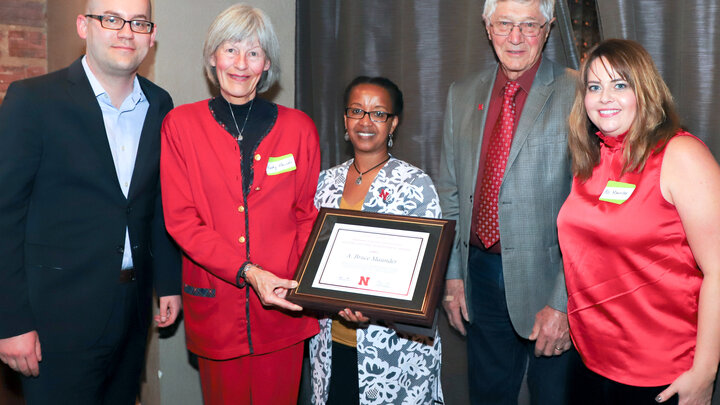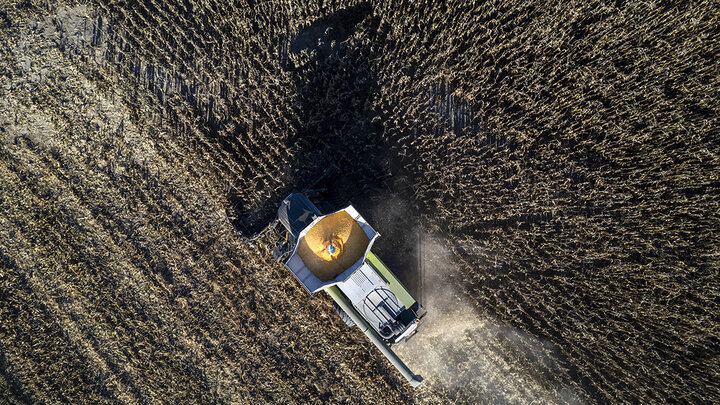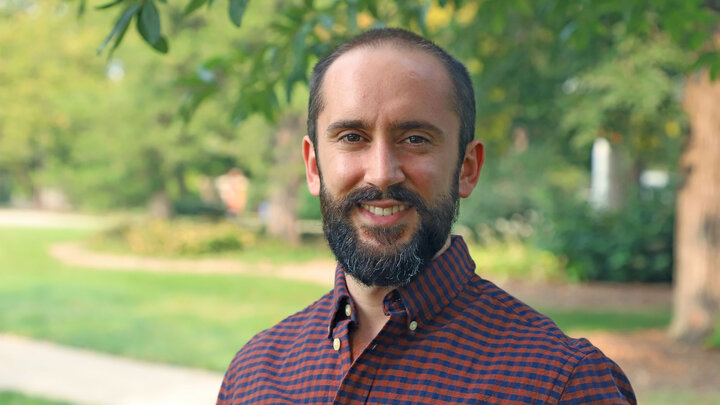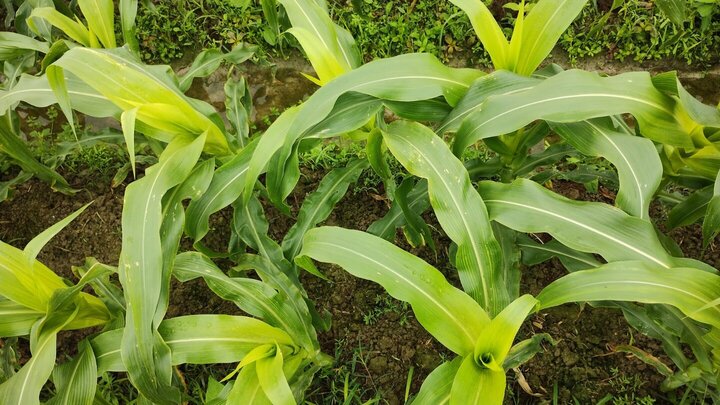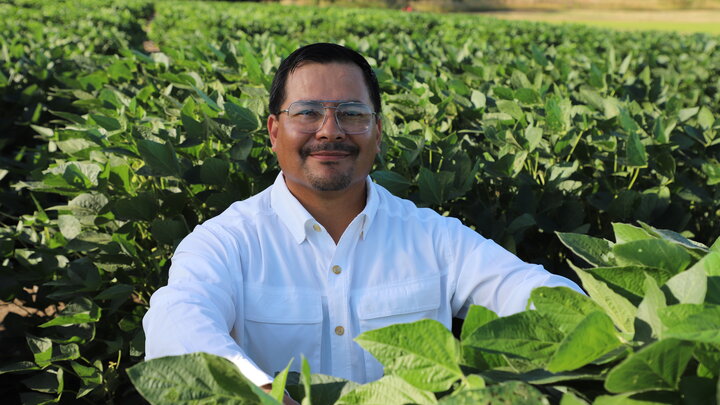Eight University of Nebraska–Lincoln alumni received the Department of Agronomy and Horticulture Alumni Lifetime Achievement Award at the 2019 Emeriti Banquet November 21. The banquet was hosted by the department’s undergraduate Agronomy Club and Horticulture Club members.
Award recipients include George W. Beadle, William Wesley Burr, Steve A. Eberhart, Kimberly Erusha, Franklin D. Keim, A. Bruce Maunder, Monica Norby and Robert A. Olson.
Martha Mamo, University of Nebraska–Lincoln Weaver Professor of Agronomy and Horticulture and department head, and Raymond Ward, Chairman of the Board of Ward Laboratories, Inc. and Chairman of the Agronomy and Horticulture Alumni Advisory Council, presented the awards to recipients or their families.
This award is the highest honor bestowed upon graduates of the Department of Agronomy and Horticulture who have made significant contributions to their community, state and nation through professional service, public service and/or civic engagement.
Beadle, a geneticist who won a Nobel Prize in Physiology or Medicine in 1958, received his Bachelor of Science degree in 1926 and a Master of Science degree in 1927 from Nebraska. His interest in genetics began while he was a student at Nebraska.
Beadle’s Nobel Prize was awarded for his work in demonstrating how genes control the chemistry of the living cell, one of the basic concepts of modern genetics. The discovery revolutionized the understanding of genetics.
Burr became the first head of the University of Nebraska’s Department of Agronomy in 1916 and was made assistant director of the University of Nebraska Experiment Station in 1919. In 1928 he was made dean of the College of Agriculture and director of the Experiment Station, a position he held until his retirement in 1948. He graduated with a Bachelor of Science degree from the University of Nebraska College of Agriculture in 1906.
Burr provided leadership during the drought and depression years and was influential in instituting many programs of interest to people in rural Nebraska. He played a role in establishing the soil conservation district and seed certification programs in Nebraska.
Eberhart graduated from Nebraska with a Bachelor of Science degree in general agriculture in 1952 and a Master of Science degree in plant breeding in 1958. In 1988, he was awarded an Honorary Doctor of Science from Nebraska.
He worked as a research geneticist with the United States Department of Agriculture’s Agriculture Research Service in North Carolina, Iowa and Kenya. While in Kenya, he and co-workers developed a comprehensive breeding system to develop improved maize breeding populations and parental lines. He developed corn hybrids for Eastern Africa that were used extensively for more than 20 years that had the most potential for quickly increasing yields to reduce hunger.
Erusha grew up in Iowa and graduated from Iowa State University in 1982 with her Bachelor of Science degree in horticulture. In 1984, she moved to Nebraska to work for Robert Shearman, now Emeritus Sunkist Fiesta Bowl Professor of Agronomy, as an extension associate in the turfgrass Integrated Pest Management program. She also earned a Master of Science degree and a Ph.D. in horticulture, specializing in turfgrass management.
Erusha joined the United States Golf Association in 1990 and serves as the managing director of the agronomic and environmental division.
Keim graduated from the University of Nebraska with a Bachelor of Science degree in agronomy in 1914 and a Master of Science degree in 1918. He served as chairman of the Department of Agronomy from 1932–1952.
Under his leadership, the department came to be respected as having one of the best departments of agronomy. He is recognized for his outstanding leadership in the field of agronomy both as a teacher and an administrator.
Maunder was a worldwide leader in sorghum breeding and genetics and focused his career on improving global food security. He graduated from Nebraska with a Bachelor of Science degree in agriculture in 1956. He was awarded an Honorary Doctorate degree in Science and Agriculture from Nebraska in 1991. Maunder had a 37-year career at Dekalb Genetics Inc., as director of sorghum research and eventually senior vice president for research in Lubbock, Texas.
His plant breeding achievements resulted in worldwide sorghum improvement with around 150 commercial sorghum grain and forage hybrids grown on as many as 10 million acres in more than 20 countries. His efforts were key to increasing agricultural production worldwide during a period when the world’s population more than doubled.
Norby, University of Nebraska–Lincoln Assistant Vice Chancellor for Research, is responsible for developing strategic research initiatives and for the oversight of federal relations, research communications and international research collaborations. She received her Bachelor of Science in horticulture in 1977 and a Master of Science in plant breeding and genetics in 1982, both from Nebraska.
Norby has played a key role in establishing and securing funding for major projects, centers and institutes at the university. Key projects include the Nebraska Center for Virology, the Extreme Light Laboratory, NEBRASKA MATH, Johnny Carson Center for Emerging Media Arts, Nebraska Center for Energy Sciences Research and the Robert B. Daugherty Water for Food Global Institute. From 2012–2013, she was Associate Director of DWFI and developed staff, programmatic areas and strategic and marketing plans for the institute.
Olson, soil scientist and professor of agronomy at the Nebraska from 1948–1986, became Nebraska’s first full- time extension agronomist specializing in soils, initiating extensive fertilizer and soil testing operations.
He received an A.B. degree in chemistry and soils from Nebraska in 1938 and a Master of Science degree in soils after the war. He was appointed to the agronomy faculty at Nebraska in 1948 and promoted to professor of soils in 1957.
Olson and colleagues proved that excessive nitrogen fertilizer could actually hurt crop yield and warned that improper use of fertilizer eventually would pollute ground water. Their work had major implications in the efficient use of fertilizer nitrogen, the environmental impact of nutrient use in agriculture, the upgrading of soil testing as an economic and environmental monitor and the interaction of tillage method and fertilizer use efficiency. They provided farmers greater consistency and integrity to soil testing recommendations.
Full biographies of award recipients are available at https://agronomy.unl.edu/alumni-lifetime-achievement-awards-2019
The award was founded in 2016 to recognize alumni who have enhanced the reputation of the department and the university by distinguishing themselves in their careers. Honorees are selected by the AHAAC.
